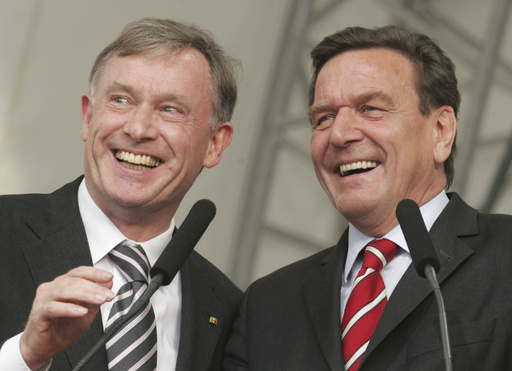
Former German President Horst Köhler Passes Away at 81
Horst Köhler, who previously served as the head of the International Monetary Fund and later became a revered president of Germany, has passed away at the age of 81. His family reported that he died on Saturday morning in Berlin after a brief illness, as confirmed by the office of the current German president, Frank-Walter Steinmeier.
Prior to his presidency, Köhler was relatively unknown to the general public and was not particularly involved in mainstream politics. His unexpected election to the presidency in 2004 drew skepticism, highlighted by a headline from the popular daily newspaper Bild that read, “Horst Who?” However, during his tenure from 2004 until 2010, he gained significant popularity, largely by presenting himself as an outsider to the German political establishment.
Köhler was known for his principled approach and did not shy away from voicing constitutional concerns, even refusing to endorse certain legislation that he deemed problematic. His relationship with Chancellor Angela Merkel, who had nominated him for the largely ceremonial role, was complex; although they had a working collaboration, he often voiced opinions that did not align with the government’s agenda.
Elected at a challenging time for Germany, Köhler pushed for progress and modernization. He was vocal about the necessity for Germany to adapt and reform its labor market and welfare systems. In a notable speech in July 2005, he called for an early election and highlighted the “giant challenges” the nation faced for its future.
Köhler’s later presidency saw the rise of Merkel’s administration, which faced some challenges of its own as it tried to navigate electoral sensitivities after Köhler urged deeper reforms. As the global financial crisis unfolded, he expressed his concerns about financial markets, which he described as a “monster that had not yet been tamed.” During his second term, public criticism regarding his perceived lack of engagement grew, culminating in his surprising resignation on May 31, 2010. This decision followed comments he made in a radio interview, linking military deployments to Germany’s economic interests, which stirred considerable controversy.
An advocate for international issues, Köhler gained respect for his focus on Africa’s needs and became the second German president to visit Israel’s parliament. His words of humility regarding Holocaust victims resonated deeply, as he acknowledged the painful history with sincerity. His diplomatic efforts also included fostering closer ties with Poland, a country he hoped would become as vital a partner for Germany as France.
Born on February 22, 1943, in Skierbieszow in occupied Poland, Köhler’s family fled to Germany after World War II, eventually settling in West Germany. His extensive experience in public service began in the finance sector, where he worked under Chancellor Helmut Kohl, playing a key role in economic diplomacy, the formulation of the euro, and the reunification of Germany. He later took up the presidency of the European Bank for Reconstruction and Development before being appointed as the head of the IMF in 2000.
In a heartfelt message of condolence to Köhler’s wife Eva Louise, President Steinmeier expressed that many in Germany would grieve his loss. He praised Köhler’s extraordinary contributions to both Germany and the global community, honoring his approachable nature, infectious laughter, and unwavering optimism. Steinmeier also acknowledged Köhler’s impactful speeches that, while sometimes challenging, garnered notable respect.
Köhler is survived by his wife, daughter Ulrike, and son Jochen, leaving behind a legacy marked by a commitment to national and global issues.

